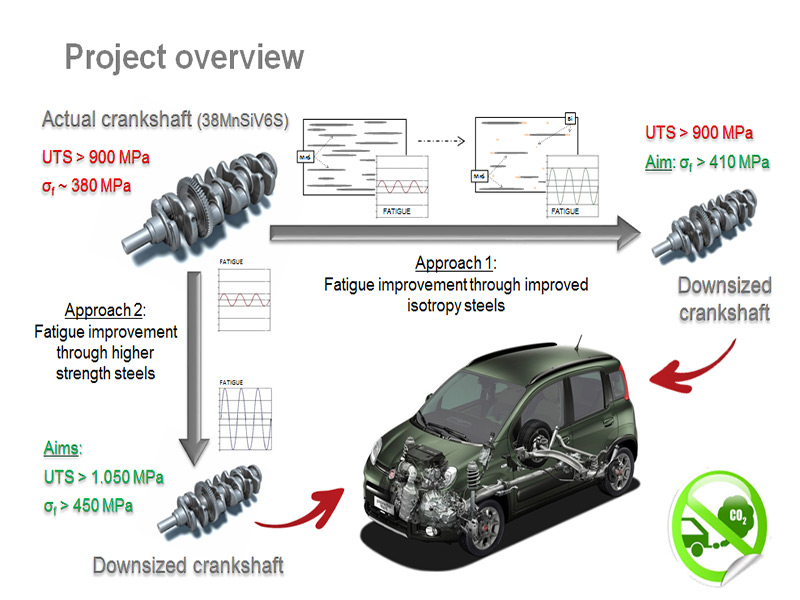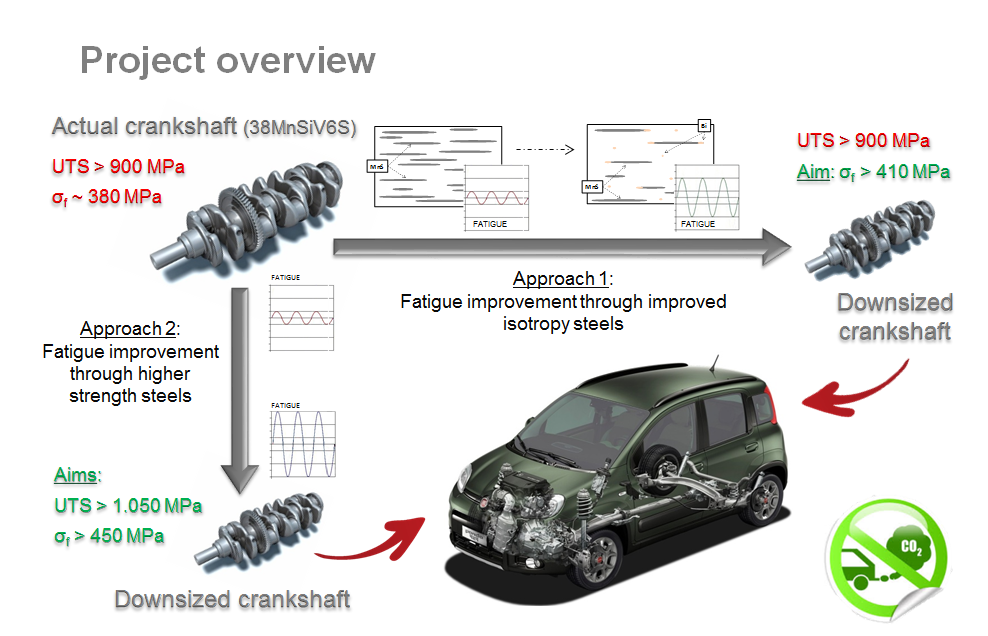
Leaded by Sidenor I+D, the European project INNOFAT (Innovative approach to improve fatigue performance of automotive components aiming at CO2 emissions reductions), faces the CO2 emissions reduction by means of the weight reduction of automotive components. This component downsizing is attained thanks to the improvement of its fatigue performance. The project is focused on forged crankshafts manufactured with ferritic-pearlitic microalloyed steels. To reach the project aim, two different approaches are proposed:
- Steel isotropy optimization to improve its multiaxial fatigue performance without deteriorating the machinability.
- Development of a new high strength (UTS > 1.050 MPa) ferritic-pearlitic microalloyed steel leading to an enhanced fatigue behaviour.
Along the project, apart from evaluating the different operations of the crankshafts manufacturing process at laboratory scale, real crankshafts will be also produced in order to determine the improvements achieved thanks to the utilization of the steels studied in the project. It must be highlighted that, although the project aims the evaluation of crankshafts, the developed technologies will be easily applied to other components such as wheel hubs, gears, common rail…
The project Consortium is formed by, apart from Sidenor I+D, two RTDs (Swerim from Sweden and IPM from the Czech Republic), one university (RWTH-WZL from Germany) and an end-used (CRF Fiat from Italy). The INNOFAT project, granted by the RFCS (Research Fund for Coal and Steel), has a total budget of 1.79 M€ and a duration of 42 months (from July 2017 to December 2020).



